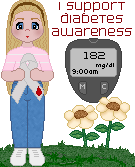How to Cope with a Health Condition or Disorder

How Will You Feel When You Get the Diagnosis?
Your reaction when you learn the diagnosis for the symptoms you've been experiencing is going to depend on multiple factors:
- Your age
- Your life experience
- The diagnosis itself
- The implications of treatment
- The severity of the condition or disorder
- Your prior knowledge of and and experiences with others with the same diagnosis
- The severity of your symptoms and length of illness/pain
- The source of your diagnosis
If you're like many people, the last words you'll likely hear when your health care provider tells you the diagnosis is that diagnosis itself. The provider may continue with explanations or other information, but if the diagnosis itself provokes anxiety, surprise or disbelief, your thoughts will be on that, not what the provider is saying. This isn't at all abnormal.
Taking someone with you to such an appointment may be helpful because that person will likely be in a position to hear what the provider is saying and to ask pertinent questions that may allude you at that time. Another option is to make another appointment in the very near future to return to the provider to ask questions and receive information.
Evaluating the Source of Your Diagnosis
You might wonder how the source of the diagnosis of your health condition or disorder could have a bearing on how well you handle that information. A recent survey by the Pew Research Center's Internet & American Life Project found that 35 percent of American adults have gone online to determine what medical condition they, or someone they know, may have.
It can be frightening or difficult to learn of your diagnosis at a personal visit with your health care provider, but imagine the panic that could ensue from discovering through even the most trustworthy Internet resources information about a health condition that could have long-ranging effects.
Here, a line from former president Ronald Reagan (borrowed from a Russian proverb) applies: Trust, but verify. Self-diagnosis online must be verified by a health care provider before you accept it as accurate. The Internet is a great place to search for health and medical information, but neither you nor the computer have the same set of diagnostic skills as a degreed practitioner.
"Trust, but verify," also pertains to any diagnosis or absence of diagnosis from a health care provider. Some doctors will suggest you get a second opinion, others leave it up to your discretion. A good way to go in obtaining a second opinion is to seek one outside the medical practice to which your medical provider is a member and look for a specialist in the area of medicine that addresses your health situation.

Reliable Online Sources of Health Information
- healthfinder.gov - Your Source for Reliable Health Information
Your source for reliable health information from the Federal government. Offering quick guides to healthy living, personalized health advice, and tips and tools to help you and those you care about stay healthy. - Health Topics: MedlinePlus
Health Topics - National Health Information Center, U.S. Department of Health and Human Services | Health.gov (ODPHP
THE NATIONAL HEALTH INFORMATION CENTER is a health information referral service. NHIC puts health professionals and consumers who have health questions relating to health promotion, diseases, and disease prevention, in touch with organizations that a - Home - ClinicalTrials.gov
Database of privately and publicly supported clinical trials - Home - PMC - NCBI
National Library of Medicine's database of journal articles - Find a Library: MedlinePlus
Find a health or medical library in your area.
Steps to Take After Your Diagnosis for Health Condition or Disorder
The severity of your newly-diagnosed health condition will affect how you learn to handle the condition or disorder. The Agency for Healthcare Research and Quality, AHRQ, of the U.S. Department of Health and Human Services suggests five basic steps:
- 1. Take the time you need. The diagnosis of many health conditions can cause people to feel many things, from anxiety and shock to depression, denial and guilt. Don't beat yourself up for having these feelings, but work through them. Be open to talking with friends and loved ones about how you feel; seek spiritual or psychological support if you feel hopeless or caught up in negative feelings for a prolonged period of time.
- Don't rush to make decision about treatment while your emotions are high. Ask your health care provider how long you can safely take to take action about your condition.
- 2. Get the support you need. As mentioned, seek support and comfort from those around you. Consider resources such as support groups or self-help groups of people with health conditions such as yours; this can be accomplished in-person locally or via the Internet.
- 3. Talk with your doctor. You and s/he are partners in your health care. The only way partners can work together effectively is if there is open and honest communication between the two of you. Even though you may be seeking information about your disorder from a number of resources, which is good to do, always ask your doctor first about questions and concerns you may have.
- 4. Seek out information. Look for evidence-based information; this is information obtained from clinical trials and outcomes research and is scientifically-based. Health and medical information abound in all types of media, but not all available information is reliable or accurate. You're going to want to know you can rely on the information you find.
- 5. Decide on a treatment plan. By now you've talked with your doctor, perhaps gotten a second opinion on your diagnosis and sought out information from reliable sources. It's time for you and your partner in health care -- your doctor -- to look at the treatment options for your condition, weigh the pros and cons of each and move forward with the treatment plan you've chosen. At this point, you may well feel empowered because you're sharing the reins of your health care. It is a big step and one you should feel successful to have made.
- Remember to keep an open dialogue with your doctor along the way of treatment and keep your support options close by and available.
Best Books on Coping with Illness
Sources
- Patient advocates can make a difference | UTSanDiego.com
Illness, pain or just the shock of being diagnosed with a serious medical condition can hinder patients’ ability to understand their treatment options or make decisions about their care. Patients may benefit by having another person by their side to - Tips on how to cope with a serious diagnosis | UTSanDiego.com
Receiving news of a significant medical diagnosis from a doctor can be a devastating experience for patients and their loved ones. The moment when patients and those close to them hear news of a difficult condition – whether it’s cancer, heart diseas - Wolters Kluwer Health
Helping Your Patients Cope With a Cancer Diagnosis - Dealing With a Health Condition
If you suffer from a chronic illness, you know it can be anything but fun. But you can become better informed and more involved in your care. Here are tips to help you deal. - Next Steps After Your Diagnosis: Finding Information and Support
AHRQ consumer health information for people with a disease or chronic condition on how to obtain reliable treatment information. - Overview | Pew Internet & American Life Project
Overview | Pew Internet & American Life Project









